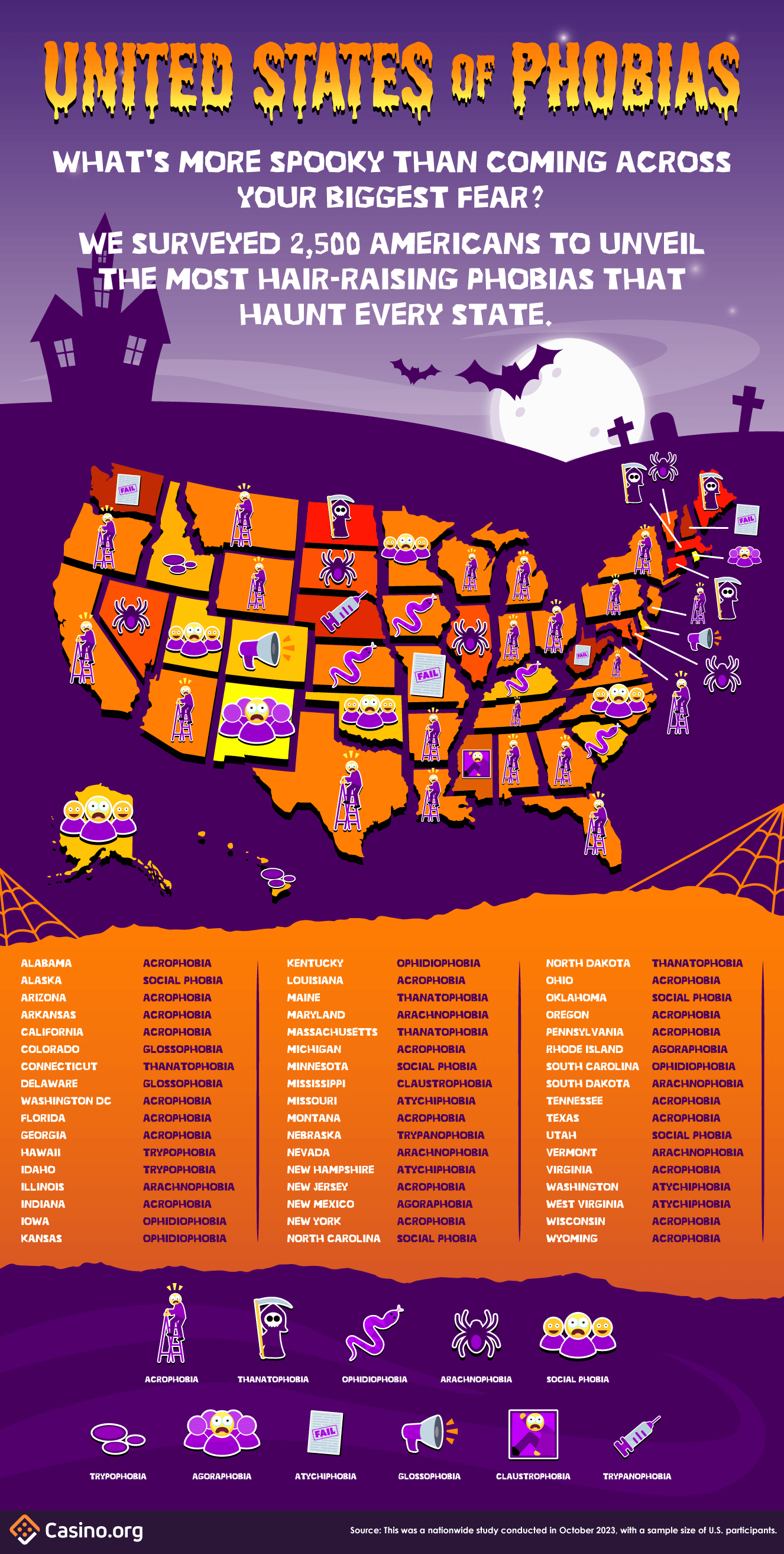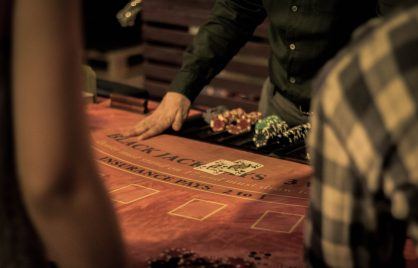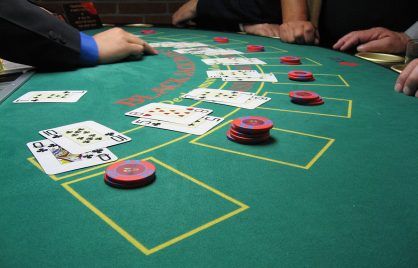Phobias: America’s Biggest Fears Across the Nation
There’s nothing spookier than confronting your biggest phobias because those ‘irrational’ fears can be as real as a haunted house. While some may scoff at these unrealistic terrors, they clearly haven’t faced deadly spiders or felt the overwhelming height awareness of looking down from the top of a tall bridge.
As Halloween creeps closer, we’re unmasking the fears that send shivers down Americans’ spines. We surveyed 2,500 Americans to reveal every state’s biggest phobia for the country’s spookiest holiday.
Key Findings:
- Acrophobia (the fear of heights) is America’s #1 phobia, according to 21 states
- Who said all Americans were loud? Social phobia was voted as 6 states biggest phobias, making it America’s 2nd haunting fear
- Arachnophobia, the fear of spiders, ranks 3rd nationwide, according to 5 states
- Atychiphobia (the fear of failure), Thanatophobia (the fear of death), Trypanophobia (the fear of injections) and Ophidiophobia (the fear of snakes) tied for 4th overall
Gulp…These are the phobias keeping Americans up all night
Phobias come in many different shapes and forms. While some may be easier to avoid, others can send us running for the hills. Whether it’s the creepy crawlies, social situations, specific foods, or peculiar objects, we’re all familiar with the spine-tingling, ‘get-me-out-of-here’ feeling. Here are some of the biggest phobias that get America’s hearts pounding.

Acrophobia, the fear of heights, takes the highest spot in America’s fear-o-meter, with 21 states claiming it as their biggest phobia. Whether it’s a towering bridge, rollercoaster, or sky-kissing skyscraper, many can’t shake off the ‘I won’t look down’ nerves. The sky may be the limit, but for these states, it’s an entirely different story.
Silence please…Social phobia, the fear of social situations, is prevalent in the following states: Alaska, Minnesota, North Carolina, and Utah. This makes social phobia the second-largest phobia across the country, so you’ll never have to worry about the ‘never talk to strangers’ rule in these states.
Eep! In third, Arachnophobia, the fear of spiders, has captured the states of Illinois, Maryland, Nevada, South Dakota, and Vermont in its spiderweb. With their eight eyes, weirdly enlarged abdomen, and creepy-crawly spider hairs, it’s more than enough to scare the heck out of these residents just by its appearance.
Tying for fourth, is a phobia showdown between Atychiphobia (the fear of failure, Thanatophobia (the fear of death), Trypanophobia (the fear of injections), and Ophidiophobia (the fear of snakes). While some states seem to be grappling with life-crisis related fears (which, fair enough), the fear of needle injections and snakes strikes nerves throughout the nation.
Continuing on with the phobia showdown, we have another three-way tie for fifth place with some of the lesser-known phobias across the country: Agoraphobia (the fear of crowds), Glossophobia (the fear of public speaking), and Trypophobia (the fear of circle clusters). Though the fear of crowds and public speaking is connected to social fears, which many can relate to, the fear of circle clusters is a lot more…peculiar. But hey, we all have our quirky things right?
Last but not least, Claustrophobia (fear of enclosed spaces) appears to haunt one state and one state only: Mississippi. Perhaps the “i” in Mississippi feels a bit squished between all those letters, making it the ‘ideal’ state for this particular phobia!
From dreading heights, to social nerves, and even more particular fears like circle clusters, our survey reminds us that we all share a haunting fear, in one way or another. If you’re feeling extra daring this Halloween, perhaps, facing your biggest phobia is the perfect activity for you.
Methodology
In October 2023, we surveyed 2,500 U.S. residents across the country about their biggest phobias. The average age of respondents was 37.9 years old. The representative sample comprised of 50.9% female, 46.8% male, 1.7% non-binary, 0.4% transgender, and 0.2% other.
Fair use
Feel free to use the data or visuals on this page for non-commercial purposes. Please be sure to include proper attribution linking back to this page to give credit to the authors.
For any press questions, please contact rhiannon.odonohoe[at]casino.org


